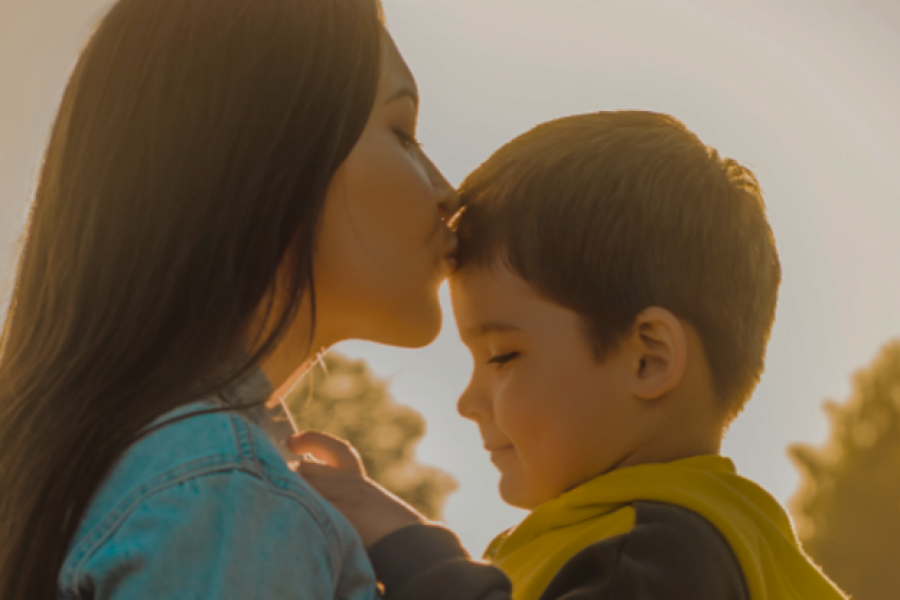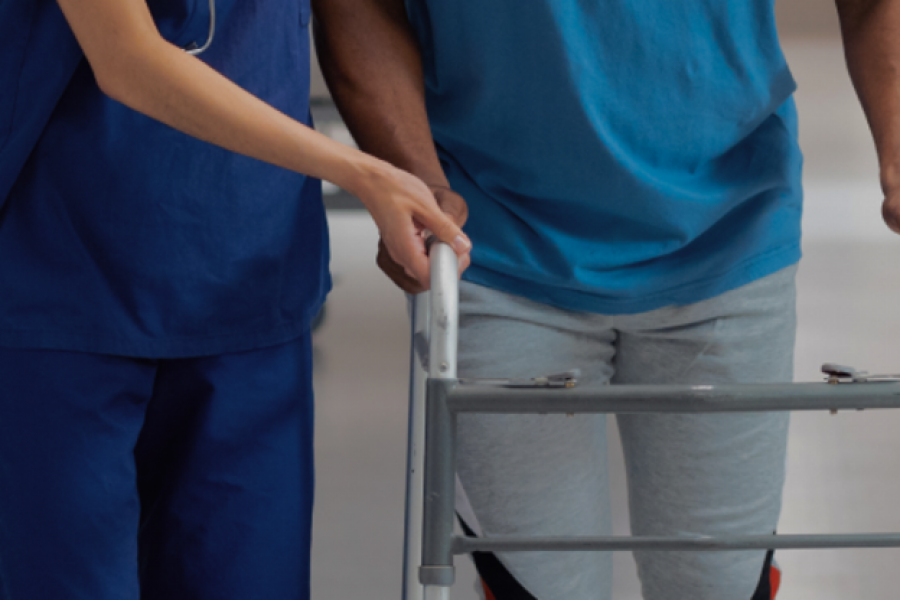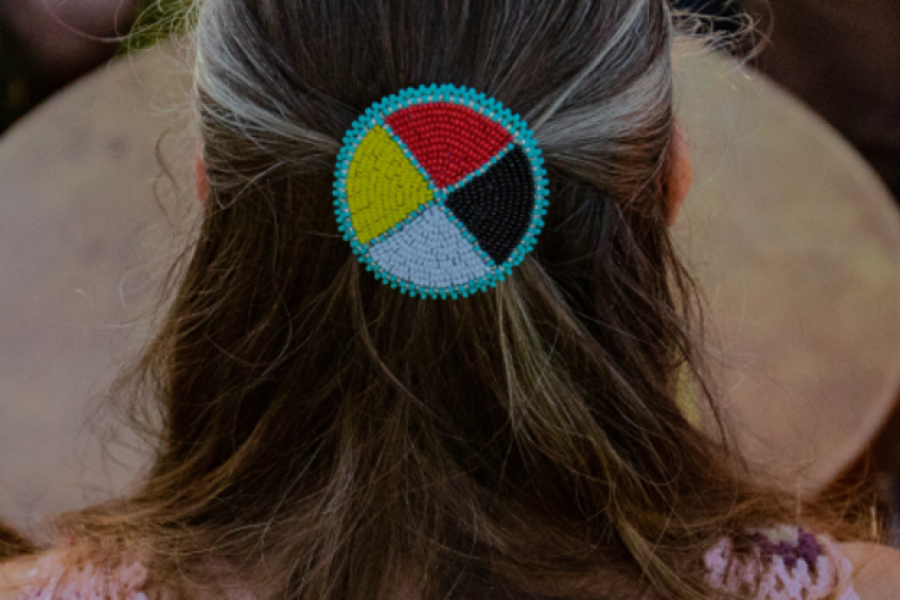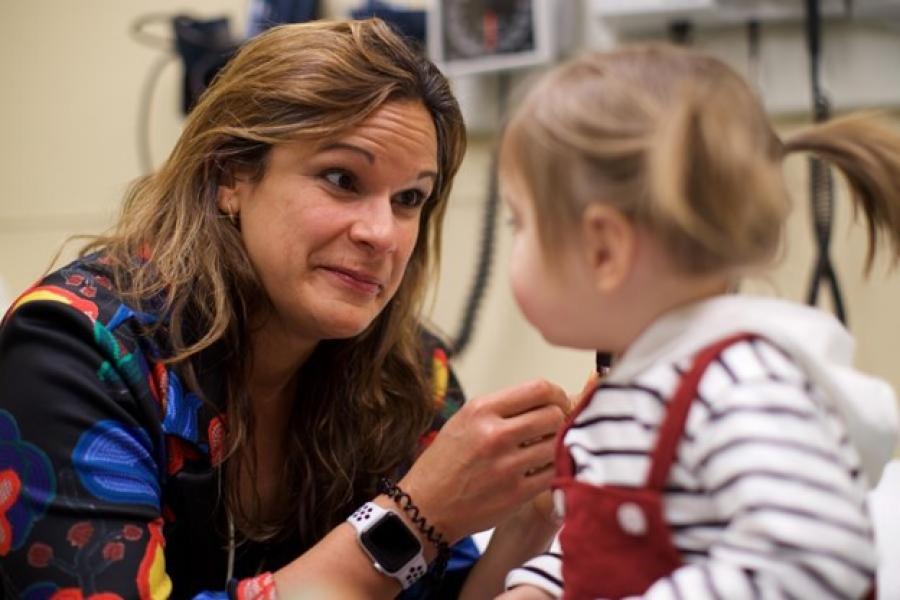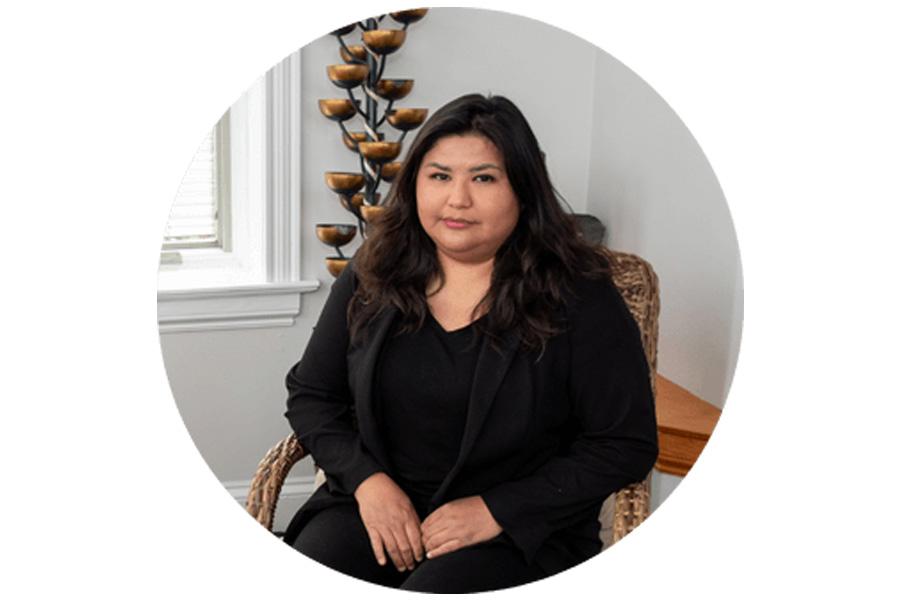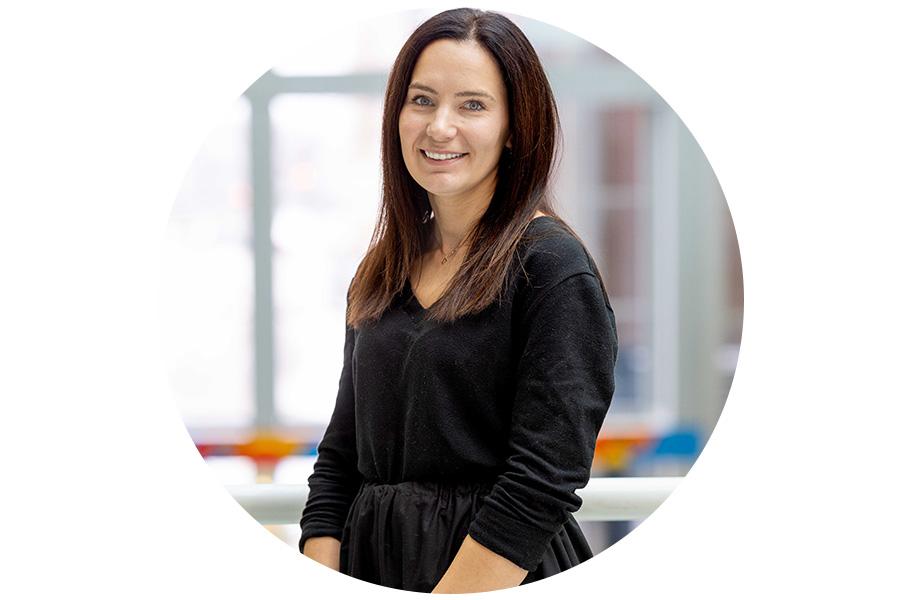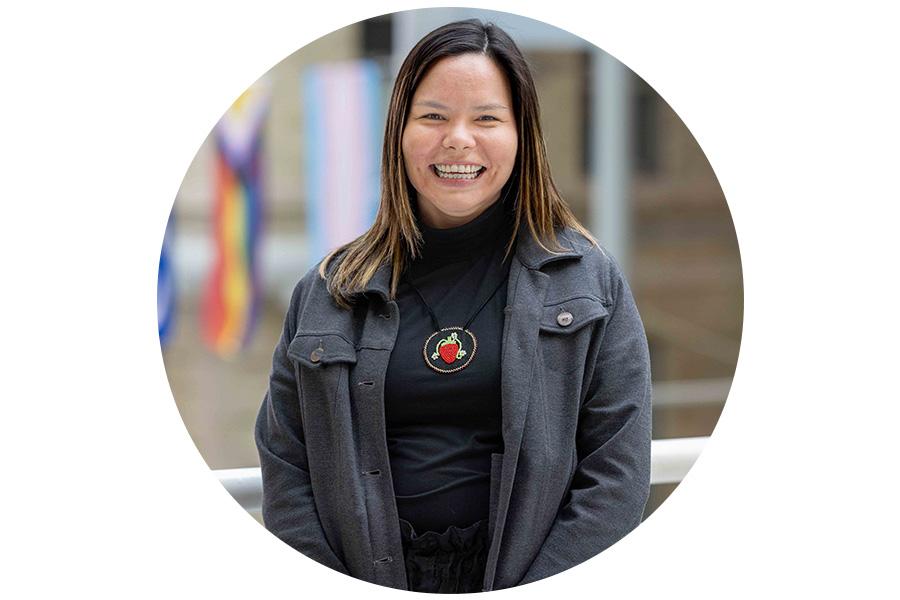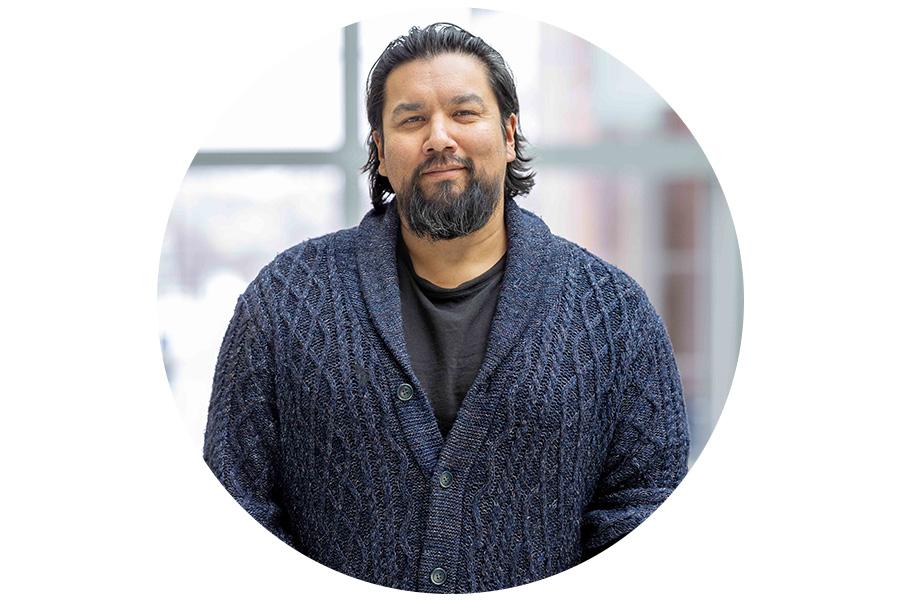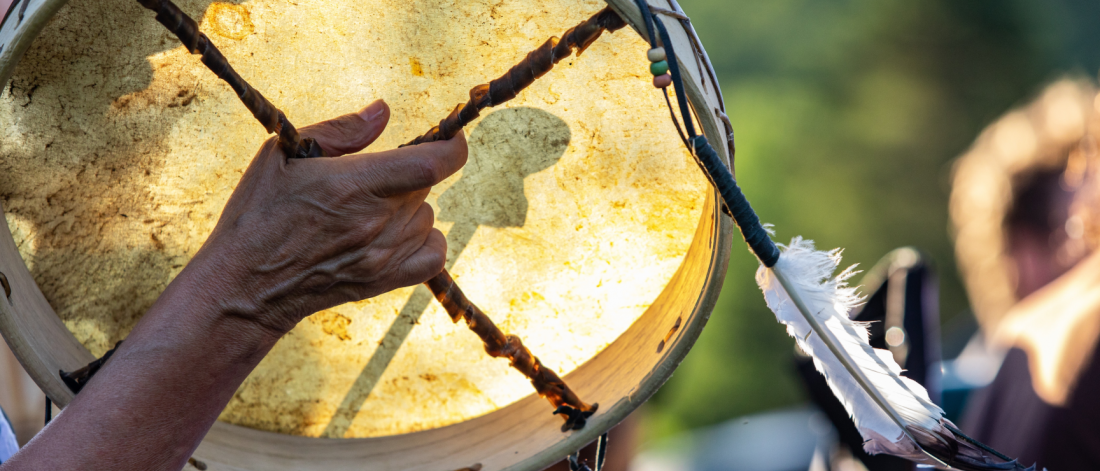
Our story
-
-
We Will Take Good Care of the People is a new change initiative developed by Ongomiizwin – Indigenous Institute of Health and Healing. Through funding contributions from Health Canada, Ongomiizwin has worked alongside partners including the Continuing Professional Development (CPD) program, the medicine program in the Max Rady College of Medicine within the University of Manitoba and the health system to develop and implement the program.
Watch this video to learn more.
Study with us
Tailored for health professionals, public health workers, and health-care systems, this program will provide you with essential skills to create a culturally safe environment for all patients.
Documents will be made available in an alternate format on request. Email culturalsafety@umanitoba.ca to inquire.
Theory of change and implementation strategy
Source: Managing Strategic Change- Strategy, Culture and Action. Long Range Planning. Feb 1992. Vol 25(1).
-
We know that the We Will Take Good Care of the People training is only one part of the larger change we want to see in the healthcare system for Indigenous peoples. As we developed the training, we spent time working on a strategy to support the change we are working towards. This work can be found in our Theory of Change and Implementation Strategy document.
You can explore this work in our Theory of Change and Implementation Strategy document. We invite you to review the strategy or listen to Dr. Marcia Anderson discuss the Theory of Change to learn more.
-
Program details
We Will Take Good Care of the People is a new training program focused on promoting cultural safety and addressing racism in health care. It’s designed for health professionals, public health workers, and anyone working in health-care systems.
Overview
This flexible program combines online learning with an in-person workshop to support your growth and understanding.
- Course length: 13 hours of online learning.
- Duration: You will have six months to complete the course at your own pace.
- Mode of delivery: Ten online lessons you can take at times that work best for you.
- In-person workshop: After finishing the online lessons, you’ll be invited to an in-person workshop. Details will be available in the New Year.
Learning objectives
By taking this training, you will:
- Learn how to provide culturally safe healthcare for Indigenous patients
- Build practical skills to apply Indigenous cultural safety in your role
- Create a strategy to address racism and integrate inclusive practices into your daily work
Course information
Modules
- Introduction to Indigenous Health and Wellness
- Foundations of Race, Racism and Anti-Racism
- The Impact of Colonization on Indigenous Health
- Foundations for Cultural Safety in Health Care
- Addressing Racism in Health Care
- Intersectionality and Indigenous Health
- Understanding Calls to Action and Calls for Justice
- Indigenous Health in Context I: Métis, Inuit and First Nations
- Indigenous Health in Context II: Urban, Rural/Remote and On-Reserve
- Weaving It All Together: Integrating Culturally Safe and Anti-Racist Health Care Practices to Advance Indigenous Health
In-person workshop
Planning for the in-person workshop is still underway. Please check back for more information.
Why take this program?
Indigenous people in Manitoba make up 18 percent of the population, yet they experience the worst health outcomes and the lowest life expectancy of any group.
By taking this program, you’ll be empowered with the knowledge and skills you'll need to actively challenge racism and promote equitable, dignified care. You’ll be equipped to make a meaningful impact on the health care system and help improve the health of Indigenous patients.
This program isn’t just about learning—it’s about driving meaningful change and improving health care for the better.
What to expect
During the online lessons, you’ll engage in thoughtfully designed activities that will encourage deep thinking and meaningful reflection.
Each module is informed by the knowledge and lived experiences of local Indigenous Knowledge Keepers and health care leaders. Their role is to help learners understand the principles of cultural safety and the critical importance of anti-racism in health care.
A team of Indigenous coach-facilitators, experienced in guiding learners through this journey, will be there to assist as you apply what you’ve learned to real-world contexts. They’ll help you reflect on the course material and turn those reflections into practical actions that create more inclusive, culturally safe environments in your professional and personal life.
Some of the topics you’ll explore - like racism and anti-Indigenous practises - may be difficult to talk about, but it's important to recognize that these conversations are important for making real change. In the wake of the Truth and Reconciliation Commission, all Canadians must face the lasting effects of colonialism and systemic racism.
While you may feel out of your comfort zone at times, you won't be taking this journey alone. Support will be available to help you navigate the material in a safe learning environment.
Register for training
The Rady Faculty of Health Sciences (RFHS) will have 500 seats available annually for paid UM faculty and staff. To allocate seats fairly, Ongomiizwin looked at staff numbers for each college and at the RFHS level.
Where possible, we are encouraging teams to take training in approximately the same time period. This can provide content for new conversations and can be paired with adaptive leadership approaches that create psychologically safe spaces for anti-racist action.
Registration for RFHS and medicine
Faculty and staff within the Rady Faculty of Health Sciences or the Max Rady College of Medicine can register using the online form:
This includes all RFHS-level institutional and centre staff (e.g., Ongomiizwin, Institute for Global Public Health).
For questions about RFHS or Medicine registration, please contact: Tamara Lewsey.
Registration for other colleges
If you are a staff or faculty member in one of the following colleges, please reach out to your college lead for enrollment:
- Dr. Gerald Niznick College of Dentistry — Kristjana Oliver
- College of Nursing — Jessica Bonneteau
- College of Pharmacy — Ericka de Villa
- College of Rehabilitation Sciences — Faye Bauer
Enrollment will take place quarterly with intakes in April, July, October and January.
Nil appointments
Nil appointments in the Max Rady College of Medicine, Dr. Gerald Niznick College of Dentistry, College of Nursing, College of Pharmacy and College of Rehabilitation Sciences may register for We Will Take Good Care of the People Cultural Saftery Training through the Office of Continuing Competency and Assessment, Rady Faculty of Health Sciences.
Cost: $300
Connect With A Coach
As part of this training, you have access to Connect With A Coach—a resource designed to support your learning journey.
Coaching is a collaborative process where you work with a coach to unlock your potential and make progress in both your personal and professional life. It’s about getting clear on your goals, understanding your strengths, and taking practical steps toward what matters most to you.
If you’re ready to apply what you’ve learned but aren’t sure what to do next, coaching can help you figure that out. It’s for people who want to take action and make real changes. Together, we’ll turn your insights into clear steps forward and help you build the confidence to move ahead.
Example coaching scenarios
Here are some real-world situations where coaching can help you apply what you've learned and take meaningful action in your work.
Addressing cultural safety in team discussions
Scenario:
Your team is working on a new strategic plan or clinical program. After finishing the first five modules, you realize that the needs of Indigenous peoples and cultural safety haven’t been brought up yet. You’re unsure of the best way to raise this issue with the group.
How a coach can help:
A coach can guide you on how to confidently and respectfully bring up cultural safety, fostering an inclusive environment where these important issues are addressed without disrupting team dynamics.
Being receptive to feedback on culturally safe care
Scenario:
After completing Level 2, you’ve been reflecting on a time when a colleague gave you feedback about your interactions with Indigenous patients. You realize you responded defensively and want to work on being more open to feedback moving forward, so you can provide more culturally safe care.
How a coach can help:
A coach can support you in exploring why you responded defensively and help you develop strategies to receive feedback constructively, making it easier to integrate new learnings into your practice.
Speaking up about anti-Indigenous racism
Scenario:
After completing the module on anti-Indigenous racism in healthcare, you’re starting to see things on your clinical unit differently. You feel uneasy about some of the ways Indigenous people are discussed and want help finding a way to speak up without damaging your relationships with colleagues.
How a coach can help:
A coach can help you identify effective communication strategies to address anti-Indigenous racism sensitively, empowering you to speak up confidently while maintaining positive working relationships.
Shared responsibilities
To ensure a productive and respectful coaching experience, both the coach and the client have key responsibilities. Here's a breakdown of what each person is responsible for.
Responsibilities of the Coach
Responsibilities of the Client
The client plays a crucial role in creating a meaningful coaching experience through active participation and commitment. Their responsibilities include:
- Positive intention: Arriving with a question and a desire to grow.
- Respect: Approaching discussions about Indigenous peoples with thoughtfulness.
- Commitment to growth: Reflecting on areas for improvement and taking steps forward.
- Follow-through: Acting on the strategies or plans developed during the session.
Meet our coaches
Corrine Clyne
Corrine Clyne is Swampy Cree Iskwew hailing from Kinosao Sipi – Norway House Cree Nation on Treaty 5 Territory.
A registered occupational therapist, Corrine has spent much of her career supporting care in First Nations communities, including a placement in Pinaymootang where she worked with older adults to create a culturally-relevant dementia program and toolkit and Lake Manitoba First Nation where she implemented a community walking program. Since 2021, she has worked with pre-school children in several different First Nations communities through Jordan’s Principle.
A dedicated learner, Corrine has completed a master’s degree in occupational therapy from the University of Manitoba, a bachelor’s degree in conflict resolution studies from the University of Winnipeg, a geriatric certificate from McMaster University and an Indigenous Women in Leadership program through Coady Institute at St. Francis Xavier University. She is currently pursuing a PhD in applied health sciences at the University of Manitoba.
In addition to her work and studies, Corrine recently took on a new role, as a coach and resource for health staff, faculty members and students completing We Will Take Good Care of the People.
“My passion for advocating for Indigenous clients to receive culturally safe care within the health-care system motivates me,” she said. “As both a patient and a health practitioner of Indigenous background, I understand the significant impact this access has on overall health. My goal is to educate and collaborate with others to help them become more culturally safe practitioners.”
Corrine is deeply committed to advocating for First Nations to receive culturally safer health care and looks forward to supporting participants along their learning journey, particularly during moments that may feel uncomfortable.
“My advice [to participants] is to sit with the discomfort and work through what is making them uncomfortable. We all come with our own journey, and it is okay to ask for help.”
Corrine works closely with First Nation clients in various capacities and was recently recognized for her outstanding contributions to the field of occupational therapy, with the prestigious Award of Merit from the Canadian Association of Occupational Therapists (2024).
Beyond her professional endeavors, Corrine finds joy in being a dog mom to her miniature pinscher, Coda, and cherishes her roles as an aunty, friend, and sister.
Kaitlin Hogue
Dr. Kaitlin Hogue is of mixed Red River Métis and settler ancestry. Born and raised in Winnipeg, she spent her formative years living in St. James, close to where her ancestors lived and ran The Passage across the Assiniboine River.
After completing medical school at the University of Manitoba in 2015, Kaitlin chose to specialize in pediatrics, completing a pediatric residency in 2020, and a pediatric emergency medicine fellowship in 2023.
A consultant pediatrician with Ongomiizwin Health Services since 2021, Kaitlin supports health services in two northern communities in addition to her work at HSC Children’s emergency department, a role she began in 2023.
“There is so much evidence of the significant health inequities faced by Indigenous patients and that gaps in health outcomes are actually growing,” she said. “Many within the health system do not have an understanding of how this impacts Indigenous people in our day-to-day interactions.”
She added, “This role called to me as a way to participate in improving awareness and assisting other health-care workers in providing more culturally safe care.”
Kaitlin recognizes there may be moments in the training when participants feel discomfort or distress in the information presented.
“I urge them to pause and reflect on those feelings and acknowledge that these feelings are common when discussing racism, which is why many people shy away from the topic,” she said. “I would suggest if someone is feeling comfortable in their antiracism work, they are probably not being challenged to learn and grow. Let the feelings sit for a while, then connect with a coach to dive deeper into the concepts and remember that the more we lean into this discomfort, the more we grow in our antiracism journey and the safer our patients will be.”
Surrounded by children during her work hours, Kaitlin spends much of her time outside of work with a child on her hip, or a book in her hands and asks course participants to inquire about her favourite Indigenous reads.
Maynan Robinson
Maynan nitisihkáson, Maynan Robinson, is Cree and Métis, born and raised in Winnipeg. Her dad is from Bunibonibee Oxford House Cree Nation and her mom is Métis with roots in St. Laurent and Peguis First Nation.
Maynan graduated from the University of Manitoba in 2013 with a master of occupational therapy. Over the course of her career she has worked in both hospital and community settings, including as a clinical occupational therapist and education coordinator with Jordan’s Principle at the Rehabilitation Centre for Children, within the Manitoba Renal Program and today, supports care in both community and facility with roles within the Winnipeg Regional Health Authority’s Health Outreach and Community Support team and at Health Sciences Centre.
Maynan was inspired by her work experiences to pursue a master of arts in Indigenous governance at the University of Winnipeg. She completed the program in 2020, in partnership with her family Elder from Brokenhead Ojibway Nation, the late Anishinaabe, Gerald Folster.
Together, Maynan and Gerald explored their parallel experiences as Indigenous patient and Indigenous provider at the Manitoba Renal Program.
It was during this work that Gerald shared with Maynan how his experiences with racism and stereotyping had prevented access to emergency stroke care, resulting in him being turned away from care twice, leading to permanent and lifelong disabilities.
Gerald’s experiences had a profound impact on Maynan not only because they hit close to home (Gerald had been co-facilitating a national healing conference with Maynan’s father and brother at the time), but because they were not the first personal story shared with her of racism within a health-care setting.
“I am grateful for Gerald’s teachings and find strength to continue in this work because these stories are not few and far between, rather every Indigenous person I know has a personal story of racism in the health-care setting,” she said.
Maynan suggests [to participants] holding space for any discomfort experienced during the training, as a lesson – and an important teaching.
“Gerald Folster taught that everything is a medicine: anger, laughter, discomfort. These are gifts from the Creator that teach us who we are. I suggest that participants try to non-judgmentally, and with kindness, sit with these feelings. These can provide a lot of great information for personal learning.”
Lee Sanderson
Lee Sanderson is a Treaty status community member of Sagkeeng First Nation. His father and family are Anishinaabe from Pinaymootang, while his maternal family has connections to Kinosao Sipi (Cree), Scotland, and the area of Dominion City (paternal).
Lee is training to become a therapist and is currently a student in the University of Winnipeg’s Master of Marriage and Family Therapy program. Between 2020 and 2024 he was a full-time trauma worker on the Winnipeg Regional Health Authority’s Health Outreach and Community Support (HOCS) team, a role that involved him in complex scenarios supporting community members struggling with homelessness.
“As the trauma worker I was a counsellor on the fly. I would hold no wait list or limit in my visits with people, nor would I require people to only meet in a location of my choosing,” he said. “I would meet people by the riverside, in hospital, in shelter, or in the location they called home.”
Together, the HOCS team, comprising a social worker, occupational therapist, nurse, outreach, psychologist, psychiatrist and trauma worker, interacts with hospital teams, shelter staff, housing first teams, community clinics, and other organizations involved in community support. It is a role that motivated Lee to take on new experiences, including the role of “coach” with We Will Take Good Care of the People.
“I was motivated to take on this role in addition to my trauma worker role because it was time for me to change and add to my experiences. More than four years of listening to stories of profound sorrow had an impact on my soul and fundamentally changed the way I see the world,” Lee explained. “I wanted to give my heart and mind and spirit a reprieve from the daily dose of severe trauma while continuing to support work that helps people and offers a reminder of the people who the system has failed.”
While Lee is training to be a therapist, his goal in the coaching sessions is to provide a safe space for conversation, healing and growth.
“Growing can hurt but everything is going to be okay. Our bodies hurt when we grow in our teenage years. Our hearts hurt when we lose love. Discomfort and distress in this training are okay because we have the tools to work through this, there is a path and there are many people in your corner cheering you on. Racism is an old wound from neglect and fear and shame and misinformation, and we can totally change that with helpful information and compassion.”
You may also be looking for
Contact us
Primary contact:
Ongomiizwin – Indigenous Institute of Health and Healing
Rady Faculty of Health Sciences
P122 Pathology Building
770 Bannatyne Ave
University of Manitoba
Winnipeg, MB R3W 0W3

